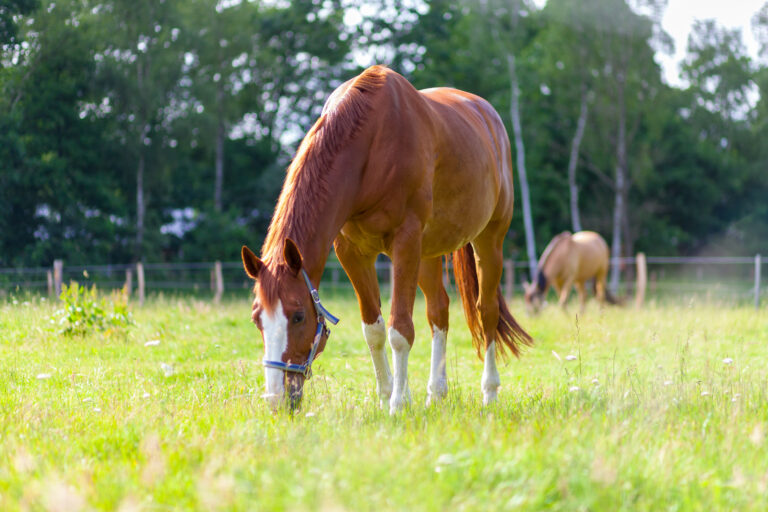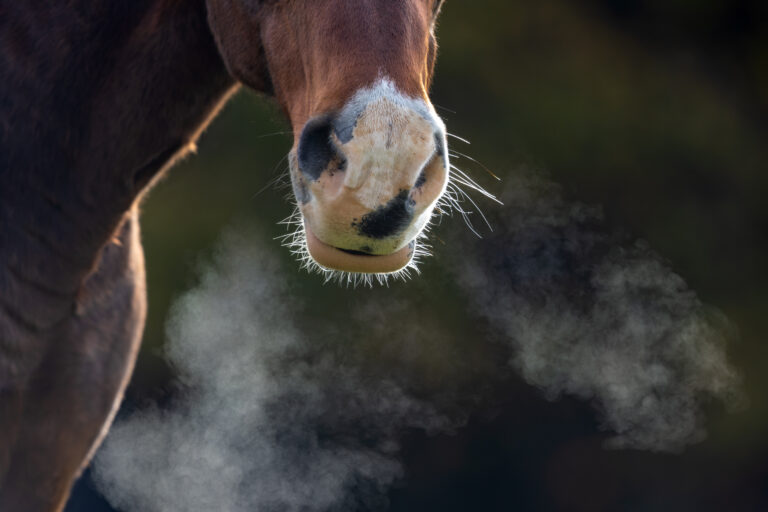
The incidence of asthma—cough, labored breathing and exercise intolerance—in adult horses ranges from 10–20%. A retrospective, case-control study at Texas A&M from January 2014 to December 2018 reviewed various factors that might pose or reveal a risk for development of equine asthma. These include signalment, dietary and stable management, medical history, metabolic status, physical exam and cytology from bronchoalveolar lavage or tracheal wash. Only one statistically significant risk factor was identified for asthma in the 74 horses: Obesity [Thomas, S.J.; de Solis, C.N.; Coleman, M.C. Case-Control Study of Risk Factors for Equine Asthma in Texas. Journal of Equine Veterinary Science, 2021; doi.org/10.1016/j.jevs.2021.103644].
You can click on the player below to listen to EquiManagement Editor Kimberly S. Brown reading this article. This audio recording is brought to you by Boehringer Ingelheim Animal Health, makers of Aservo EquiHaler.
Through a grant from the Morris Animal Foundation, TexasA &M University is researching this potential link between obesity and equine asthma. The rationale for investigating this possible association is based on a correlation of obesity with human asthma. The relevance for horses is important. Veterinarians should not medicate obese and/or endocrine-dysfunctional horses with corticosteroids due to the potential to elicit laminitis. Identifying if there is an association between obesity and equine asthma might then emphasize a safer preventive strategy and remedy. A better strategy might be weight loss regimens and dietary control.
About the Study
The study at the Texas A&M Veterinary Medical Teaching Hospital will evaluate 60 horses for the following:
- body condition score;
- insulin function; and
- degree of asthma assessed with airway auscultation, nasal discharge, cytology and analysis of lower airway fluid samples.
There will be four groups of 15 horses in each group:
- a) obese + asthmatic;
- b) non-obese + asthmatic;
- c) obese + healthy;
- d) non-obese + healthy.
Researchers will measure cytokines and other inflammatory markers in each horse. In addition, they will evaluate the lung bacteria (microbiota) of asthmatic horses to compare differences between obese and non-obese animals.









